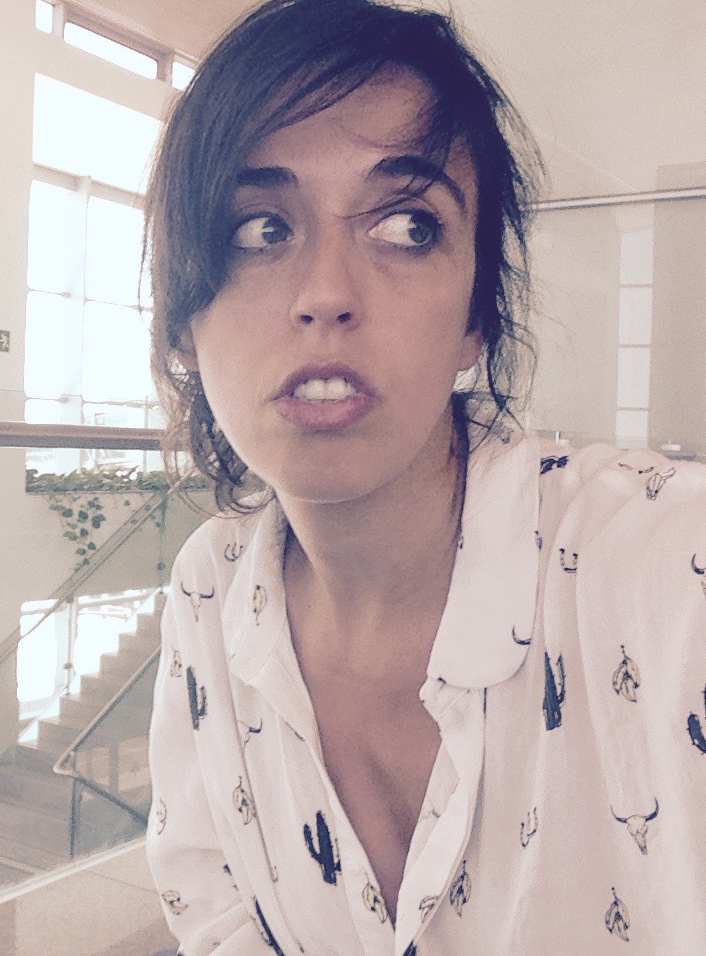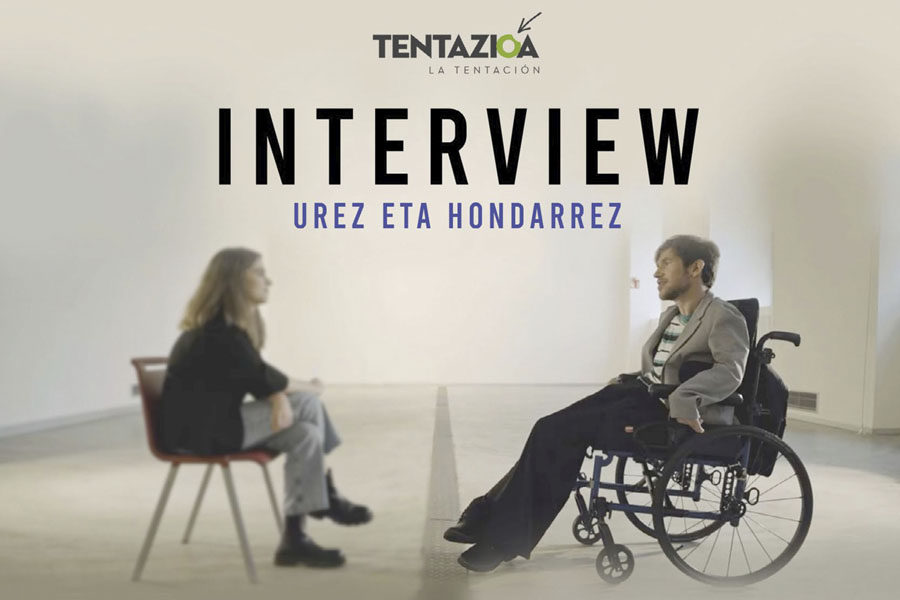"Theater is a space of freedom, and people with mental illness are used to not having it."
- Clàudia Cedó is a psychologist, theater director and playwright. Based in Banyoles (Girona), he has created Escenaris Specials, a project involving 120 people with mental illness, combining art and psychology.

In 2006, you came up with the idea of merging psychology and art. How did the idea come about?
For a long time, I was curious about the goals that could be achieved by combining psychology and theater. I had just finished my psychology studies, and as I was studying theater, I realized that my activities in the world of theater affected me with inner emotions. Without realizing it, I started working with representation things that could also be worked through psychology. So I decided that it would be useful to shape this experience and launch the Escenaris Specials project.
Did you base yourself on any reference project to embark on that path?
Art has been very much worked by therapy. For example, the psychodrama of Jacob Levy Moreno is one of the references. He also matched psychology with theater, but he selected through theater members interested in working on psychological problems to represent and work on their problems.
How does Escenaris Specials differ?
Ours is not a therapy. It is in our interest, for example, that students fighting drug addiction do a play on this issue; they may want to talk about death, or sex, or any other issue. So, in that sense, the issues are more open, because what stigma does is that people with autism or mental illness only talk about it, and that's marginalization.
Is theater as such therapeutic?
Certainly, and that is what we are based on. I mean, performing theater is good for everyone. Theater is a space of freedom to say and do what we want without filters. It is a resource, what happens is that this group is especially accustomed to not having space for freedom. Well, we don't do therapy, but if it's therapeutic, I know.

You are celebrating the tenth anniversary. Satisfied with the results?
In recent months we have organised a number of activities, but the most special has been the last: the anniversary gala. We are very happy with the result. It was a very exciting awards ceremony. The 54 works we have carried out in these ten years are mentioned in the act and, in part, it was an excuse to take a look at the whole journey.
How does recognition affect your students through an award ceremony?
Given that we hosted a Hollywood show, the students lived with a lot of excitement. Well-known actors came and we had the opportunity to make a claim. In this kind of galas, people with mental illness are usually invisible.
You started alone. Who currently composes the work team?
We now have 120 students and the team has expanded. Marta Iglesias is a psychologist and theater director, like me. Ana del Barrio is in charge of the production area, and once we create the show, more people participate in the performance of technical, scenographic and design tasks.
How do you get the funding?
To begin with, the ten foundations to which we offer theatre performances pay an annual fee. In addition, we received grants from the City Council of Banyoles, La Caixa, School of Psychologists and other associations. Our challenge is to keep looking for funding so that the economy isn't a problem involving anybody in the project.
What is the profile of students participating in it?
The profiles are very varied: adults with disabilities, mental illness, autism, children with neuromotor deficiencies and people fighting addiction, among others.
And what is your most important need?
They need initiatives that promote their freedom. But this need is generic, not just for those who suffer from marginalization, but for society in general. When we're kids, there's no problem with the spaces to play freely, but when we grow older, those spaces disappear completely. And they're fundamental to mental health. If we value the difference, culture would be enormously enriched, and art is an excellent resource for it.
Is it hard to build a project that brings art and therapy together?
The situation has improved a great deal in these ten years, but we have a lot of work ahead of us. It is difficult to make society and institutions understand that projects that combine psychology and art are essential. We're doing a great job, and people don't realize it. There is no responsibility and the struggle is ongoing.
“Psikologia ikasketak amaitu nituenean espetxeetan eta desintoxikazio zentroetan lan egiten nuen. Erraietan izan dut beti psikologia eta antzerkiarekiko interesa. Beraz, 2006an, Banyolaseko Udalari proposatu nion Escenaris Especials proiektua. Ideia zen espetxeetan zeudenei, autismoa zutenei eta alkoholismoaren kontra borrokatzen ari zirenei ikastaroak eskaintzea. Hamar urte hauetan lortu ditugun emaitzak sekulakoak izan dira. Erakunde publikoak ohartu egin behar dira gure lanak zenbateraino laguntzen dien bazterkerian dauden pertsona horiei duintasuna lortzen”.
The whore’s monologue in the madhouse
- The author(s): Franca Rame and Dario Fo.
- From the translator: Assisted by Xabi Martinez De Lezea.
- The actor is: Assisted by Laura Penagos.
- When: April 12th.
- In which: At the Atxulondo Cultural Center in... [+]
Iruñea ez da oso handia, baina Beñat Iturbek elkarrizketarako lekua hautatu duen arte ez dut jakin institutu berean ikasi genuela. Madril eta Iruñea artean bizi da, han hemen baino gehiago, oraingoz. Etxera egin duen bisita bat probestu dut harekin... [+]
I'm talking about Interview. With water and sand
Authors: Telmo Irureta and Mireia Gabilondo.
The actors: Telmo Irureta and Dorleta Urretabizkaia.
Directed by: Assisted by Mireia Gabilondo.
The company is: The temptation.
When: April 2nd.
In which: At the Victoria Eugenia... [+]















